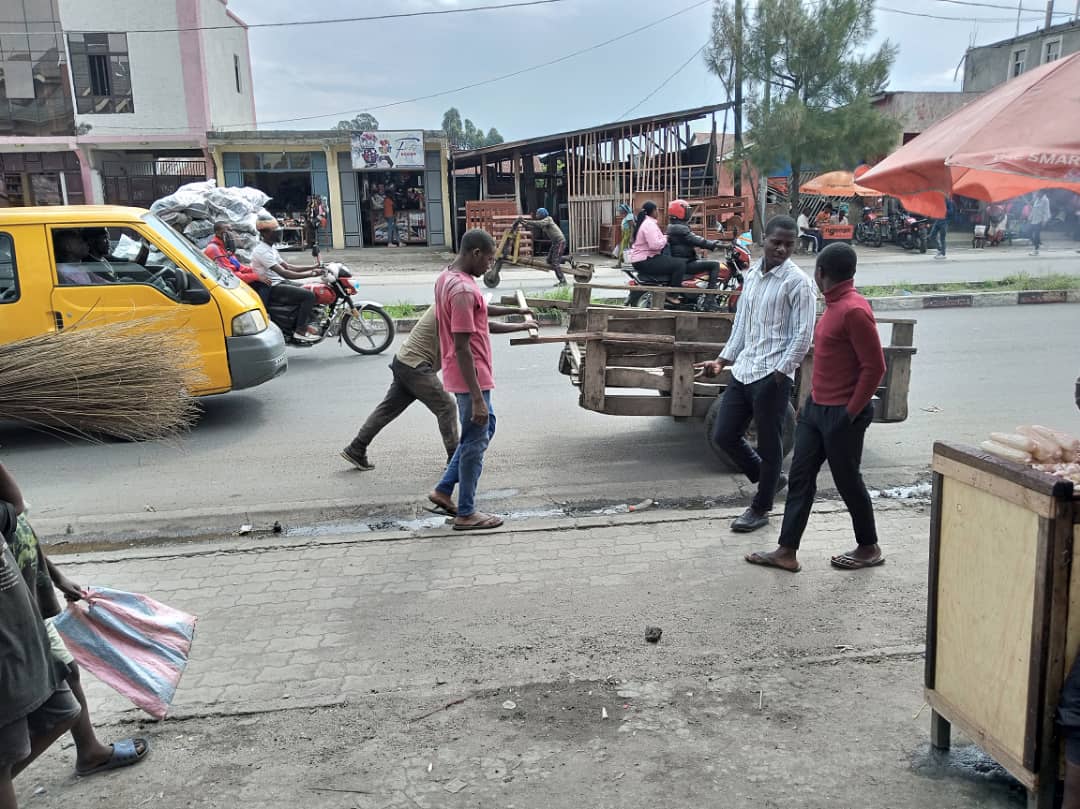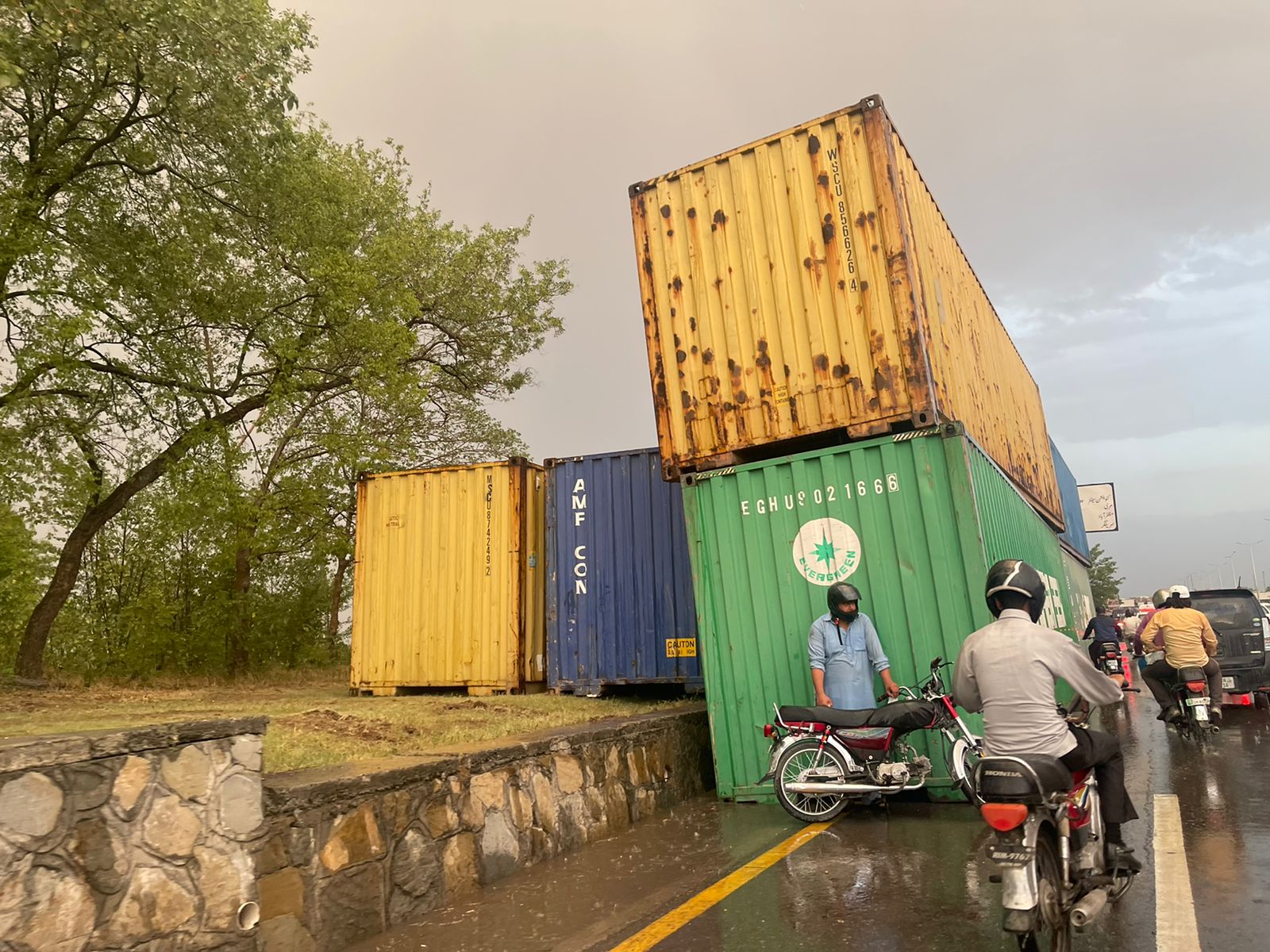
A street view in Goma, Democratic Republic of the Congo, one of the Start Network Hub locations. Photo Credit: Bienvenue Mukungilwa
From April through August 2022, Catalystas Consulting was commissioned to conduct an assessment of a three-year unrestricted grant to Start Network by an institutional donor. Our team, led by Judith Vollebregt and technical adviser Aviva Stein, with support from Daphne Mulder, examined the added value of this unrestricted funding as compared to more traditional specifically allocated forms of grant giving, by evaluating the outcomes achieved across organizational activities receiving unrestricted funding. More specifically, we investigated the grant’s contributions to the Start Network’s realization of its core goals of localization and innovation via improved approaches to financing through the piloting and expansion of humanitarian programming activities. These programs included the Start Fund, a funding mechanism responding to emergency situations; new interventions such as a Disaster Risk Financing mechanism; and the creation of Hubs as part of Start Network’s continued localization efforts, moving from a centralized organization to a ‘network of networks’ as a means to address systems change, and transition towards a system that is locally led and accountable to people affected by and at risk of crises.
While localization in the humanitarian sector has yet to become standard practice, it is becoming an increasingly common buzzword as anti-colonialism, participation, accountability, and transparency take a stronger hold as core approaches throughout the sector. There are some organizations that have taken a leading role in paving the way for real localization – as opposed to performative efforts – but this is still not the norm for most actors. As a frontrunner in the humanitarian sphere, the Start Network has taken key steps in further developing its locally-led systems, a process that would not have been possible without the unrestricted fund granted by the donor. One of their main localization efforts has been the establishment of country-level and regional hubs, which take on previously centralized decision-making responsibilities with regard to staffing, programming, funding, and the role that they play in the network. These hubs have been the main focus of our evaluation.
Throughout the process of this assessment, Catalystas gleaned a number of key lessons and elements that are crucial for true localization:
Localization efforts often focus on decentralizing decision-making to the level of affected populations. This is often promoted hand-in-hand with the idea that doing so leads to greater efficiency and effectiveness of (humanitarian) interventions. As Mark Lowcock, then Under-Secretary-General for Humanitarian Affairs of the United Nations Office for the Coordination of Humanitarian Affairs (UNOCHA) mentioned in a 2021 speech at the Center for Global Development: “It will also make our system more efficient, and it will offer financiers better value for money if we do more of the things people say they want us to do.”
At the same time, working towards localization practically uproots all the ways of working that the sector is used to. Creating new approaches takes time and effort, especially considering that localization looks different in every context and for every organization. We should not forget that the system of international cooperation and INGOs and, by extension, the majority of the humanitarian funds originate from colonialism and are not used to – nor well-prepared for – letting go of this power. While (I)NGOs and donors alike have become more vocally anti-colonialist, especially in the wake of the Black Lives Matter movement in 2020, and the long-term benefits of localization in terms of effectiveness and efficiency are clear, localization does not lend the satisfaction of being an immediate solution. This is part (but only one part) of the reason why many organizations can’t afford to take big steps. At the same time, this begs the question: should the idea of a fair and just system not be enough motivation in and of itself to make a change?
Donors willing to take on the cost of localization are few and far between, and funds that can be utilized for innovative processes alongside or instead of program implementation are scarce. And let’s be honest: it is easier to work within the existing system, than to change it. Donors often want quantifiable, instant gratification; funding programming that isn’t guaranteed to produce direct and predictable results in a specific timeline requires a major leap of faith. It takes donors with courage and an entrepreneurial mindset that values experimentation to allow organizations to experiment, challenge norms, make mistakes, and address those mistakes to ultimately improve their processes. In turn, humanitarian organizations have the responsibility to foster a learning mindset, determine whether their actions are leading to the right results, and adjust their course of action when necessary – and organizations should be able to have an open conversation about this with their donors. This way, even as the donor takes a risk, it is a calculated one.

Roadblocks in Pakistan during elections, a barrier to conducting data collection for our local teams. Photo Credit: Ali Mustafa
However, courage is nigh impossible without trust, the third key factor necessary for organizational change toward localization. Usually, donors rely on strict reporting and due diligence processes to guarantee tangible results of their programs – and as a consequence, offload the risks of funding to (mostly) international organizations. This is understandable: many (institutional) donors are held accountable for their expenditures and need to explain the choices that they make to the public. Value for Money (how much did you get done and how much did this cost?) is an oft-used measure of success. As a result, it is easier for a donor to fund programs that have quantifiable results, rather than those working toward systems change that does not come with a set timeline or result in clearly measurable impacts.
Additionally, the pressure of donor accountability is often offloaded onto INGOs. Organizations are expected to take responsibility for any (financial) mishaps or programmatic failures, which pushes them to start hefty due diligence processes, even for small funds, that are manpower and time-consuming for the intermediary NGO and their partners.
The same goes for reporting: donors often ask for detailed reports measuring pre-established indicators – taking valuable time in an effort to define something that is inherently still unknown. Instead, due diligence and reporting should be focused on learning, to provide freedom for innovative processes to unfold, and to free organizations from much of the unnecessary burden that current reporting practices impart.
In overcoming the challenges of quantifying intangible outcomes and abstract or flexible deliverables, there is a need for a strategic vision that aligns stakeholder, organizational, and donor expectations and realities. Such a strategic mindset should be a basis for donor decisions when it comes to funding, and for organizations seeking support. Coordinating donor goals around specific developments or changes together with organizational or programmatic strategies are an essential part of relationship management and delivering results that make everyone happy. However, all too often the localization component of this alignment process – also a key to true success – is left out. In truly advancing a localization agenda, with participation, inclusion, and agency put into practice, strategies must take into consideration and actively outline long term visions of localization, including anticipated and desired changes, and the potential impacts of those changes on the stakeholders, organization(s), and donor(s).
Strategic plans must consider which departments of an organization might undergo changes or require flexible adaptations as a result of localization processes – programming, HR, fundraising, management, etc. Additionally, while an entirely concrete gameplan might not leave enough flexibility, an organization’s strategy should include what localization means in practice. Which locality will be the focus? What, if anything, will be phased in or out? If power is transferred, what does that mean in practical terms: is this the transfer of decision-making power? Implementation only? And what about fundraising, and hiring staff? What – and where – will the headquarters of the organization or network be and why? Where is the Director located? Will the organizational values promote freedom and agency or oversight and guidance, or will there be a search for a balance between the two?
The strategy should furthermore address any topics relevant to and intersecting with localization, such as how the organization relates to anti-colonialism and what this means for the localization strategy; local leadership, how this is defined (at the strategic and implementational level) and how it is supported; and social, political, and economic conflict, identity, and gender sensitivity, especially relating to the continuation or transformation of existing harmful power dynamics.
The last element that leapt out at our team in this assessment – and in all of our work – as essential is communication. Both internally and externally, top-down and bottom-up – communication is key to inform stakeholders of upcoming developments on the one hand, and on the other hand, to gather inputs and guarantee that all relevant stakeholders are involved in the decision-making. In our evaluation of the Start Network’s unrestricted fund, it once more became obvious that consistent consultation with stakeholders, in this case, the hubs, was essential to the success of the network’s localization process. By investing in regular meetings, workshops, and calls, and by transitioning the monitoring and reporting process from a formal submission system to an integrated, informal process that adjusted to the capacities and needs of the implementers on the ground, the network was able to effectively initiate localization processes in five locations, in line with their strategy. Each process was tailored to the local context, and this flexibility allowed for maximum adaptation to the local needs of what a hub should do and be like.
At the same time, it was clear that the balance between providing the opportunity for local stakeholders to self-organize their localization process, and providing guidance, support, and setting strategic goals, is a delicate one. What to one actor might look like the freedom to set their own strategy, might be perceived by another as a lack of guidance, or even a lack of engagement and commitment. And what may seem like leadership to one, might be seen as neocolonialism by others. It is therefore even more essential to be aware of power relationships and dynamics, and to create transparency in communication, with tailored approaches that reflect each locality’s reality.

This brings us back to the first element: the need for support that allows for experimentation and trial and error over a longer period of time to allow results to crystalize and to find a way of working that actually creates a dynamic, sustainable impact.
Judith is a passionate development and humanitarian professional with more than eight years of experience working for actors ranging from the Netherlands Ministry of Foreign Affairs to INGOs, where she has worked on program design and development, policy development, and program management. She is an expert in the fields of improved business development, access to the labor market through higher education, humanitarian aid, and justice and security governance.
Holding a MSc in Conflict Resolution and Governance at the University of Amsterdam as well as a BSc in Political Science and a BA in Middle Eastern Studies from Leiden University, her experience focuses on fragile regions in the Middle East, South East Asia, and Sub-Saharan Africa, where she has lived and worked over the past decade for various NGOs.
Judith has extensive experience in developing and initiating projects, including scoping potential partners, finding a program’s unique selling point, and grant-writing. When it comes to project implementation, Judith is highly passionate about working with those actors on the ground who can make a real difference.
We built Lysta as an answer to one of our own problems: the need to quickly assemble teams of experts across various subject matter, geographic, linguistic, and thematic areas for projects and proposals as they arise. We quickly realized that we were not the only ones facing this challenge! With the speed that development projects require hiring, turnaround, and technical insights, we see first hand how helpful it is to have a ready-made database of vetted experts to call on.
For existing and potential Clients, you can access all consultant full profiles by signing up here as a client for free.
For consultants, adding your profile to Lysta means jumping to the top of the list for our clients in recruitment processes. We do the heavy lifting: the CV reviews, interviews, vetting, and personnel management; so when our clients come to us, they know they’re hiring someone they can trust to deliver high quality, timely results. Click here to add your profile for review.
We’re proud to be a link in the chain that connects the best of the best – don’t hesitate to reach out and see how you can put Lysta to work for you!